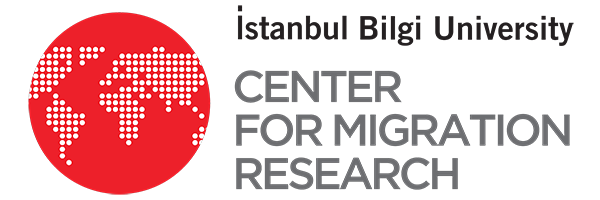Seminar "The Cities of Multiple Arrivals and Departures: A Century of Entangled Migrations in Greece and Beyond`
9 May 2025, Friday
15.00
Istanbul Bilgi University
santralistanbul Campus, E1-304
The Cities of Multiple Arrivals and Departures: A Century of Entangled Migrations in Greece and Beyond
Olga Lafazani, PhD
Marie Curie Post-Doctoral Fellow, Humboldt University Berlin
Abstract
In the research project 100 Memories, our aim was to re-narrate the history of Greece over the last century—not as a history of closed borders and immobility, as is common in nationalistic interpretations of history, but as a history of entangled mobilities. We sought to weave together the multiple migrations that have shaped—and been shaped by—four different port cities in Greece.
In Thessaloniki, Piraeus, Volos, and Chania, we traced the movements of refugees who arrived from the Ottoman Empire between 1922 and 1924, the expulsion of Jewish populations, internal migrations following the Civil War, migration to Germany and other Western European countries in the 1960s, the arrival of people from the Balkans and Eastern Europe after the fall of the Soviet Bloc, and the more recent arrivals of refugees from the Global South from the early 2000s to today. Our entry point into the study of migration histories was urban space—not through monuments, statues, or emblematic public buildings, but through the humble, everyday places where experiences of displacement, dispossession, struggle, and survival have unfolded over the last century: a house, a shoe store, a narrow street, a square. Through public seminars, pop-up exhibitions, and historical walks in different neighborhoods of these port cities, we aimed to conduct research in collaboration with local communities and to share our findings with the very people whose stories we sought to tell.
In this presentation, I will share bits and pieces of this research and discuss our methodologies, the challenges we encountered and the theoretical notions we engaged with throughout the process. I will also reflect on the role of collaborative and public history in reshaping narratives of migration and mobility.
Biographical note
Olga Lafazani’s research interests are focused on the intersections of migration, gender, urban space, borders, and economies. She obtained her PhD on “Transnational geographies of migration” from the Department of Geography at Harokopio University in Athens. She has participated in various research projects and her work has been published in national and international journals and books. She has taught courses on human geography, anthropology of migration, border cultures, gender, and technology at different Greek universities. She has served as the principal investigator for the project “One century, Two refugee crisis” (ELIDEK), which aims to unravel the complex histories of arrivals and departures, as well as the different refugee figures that have shaped and been shaped in the last century in Greece.
Currently, she is a Marie Curie Postdoctoral Fellow at Humboldt University, where she is conducting research on the Political Economies of Refugee Camps (CamPEconomies). She is also the Scientific Representative of the COST project “Data Matters: Sociotechnical Challenges of European Migration and Border Control” (DATAMIG) that brings together more than 70 universities and research institutes and more than 200 researchers from all over Europe and beyond.
